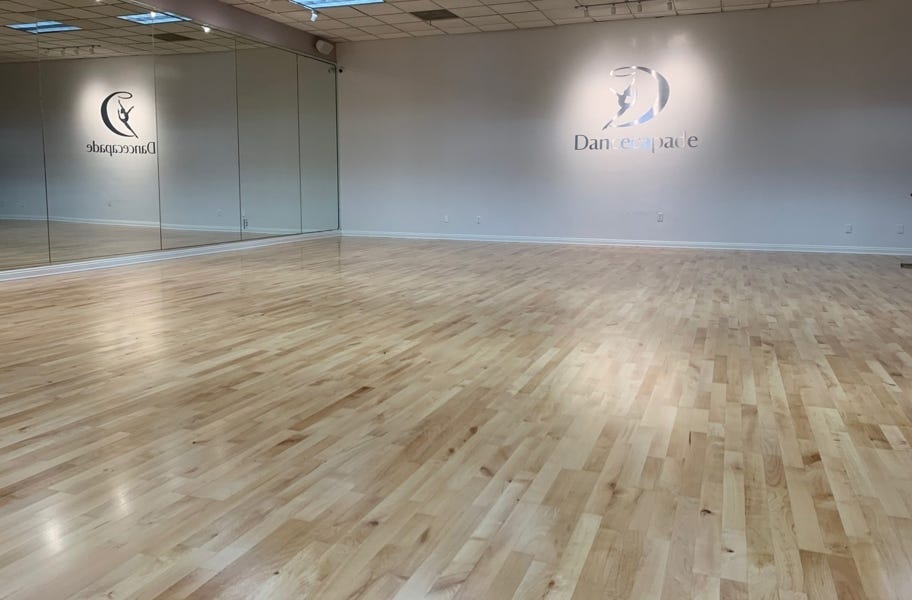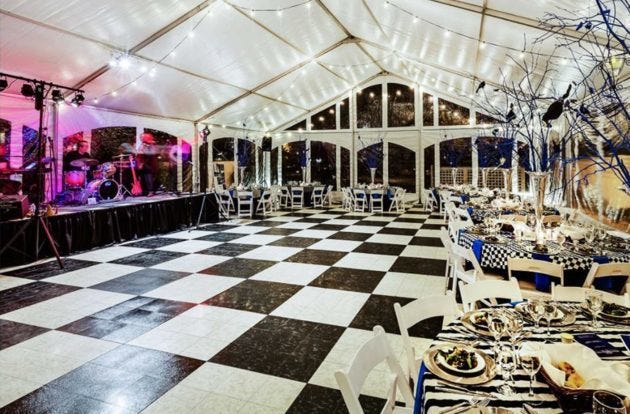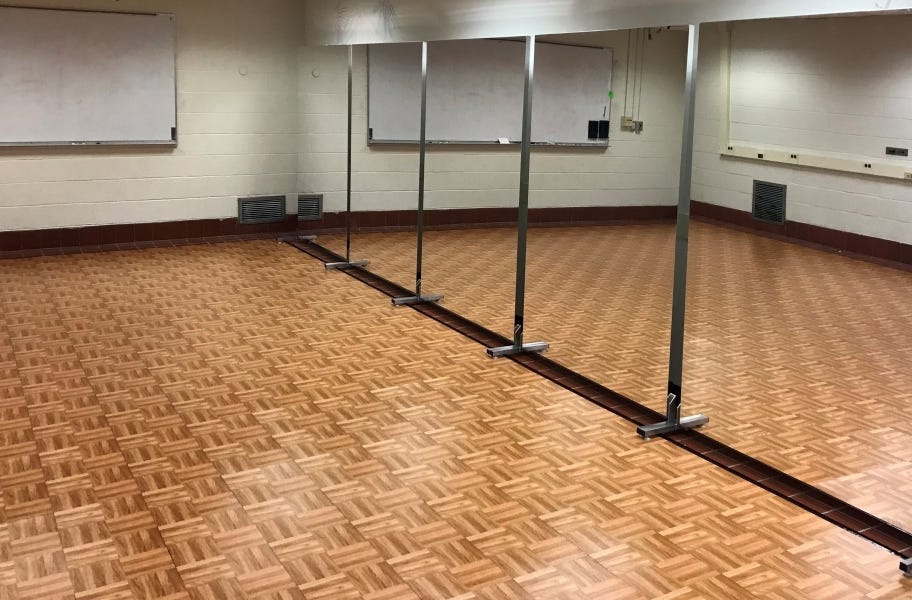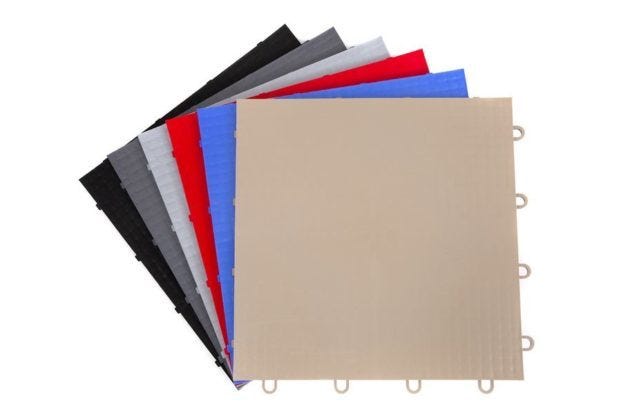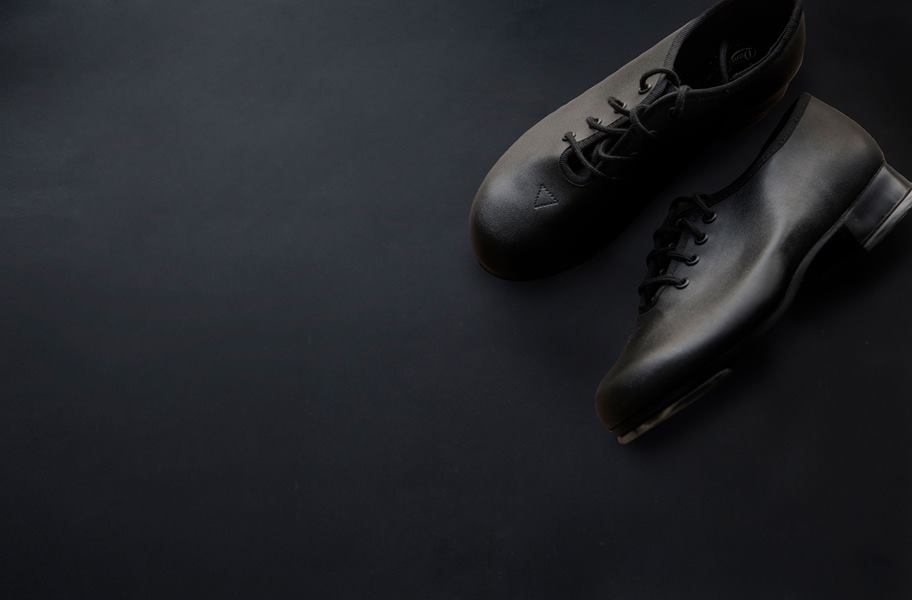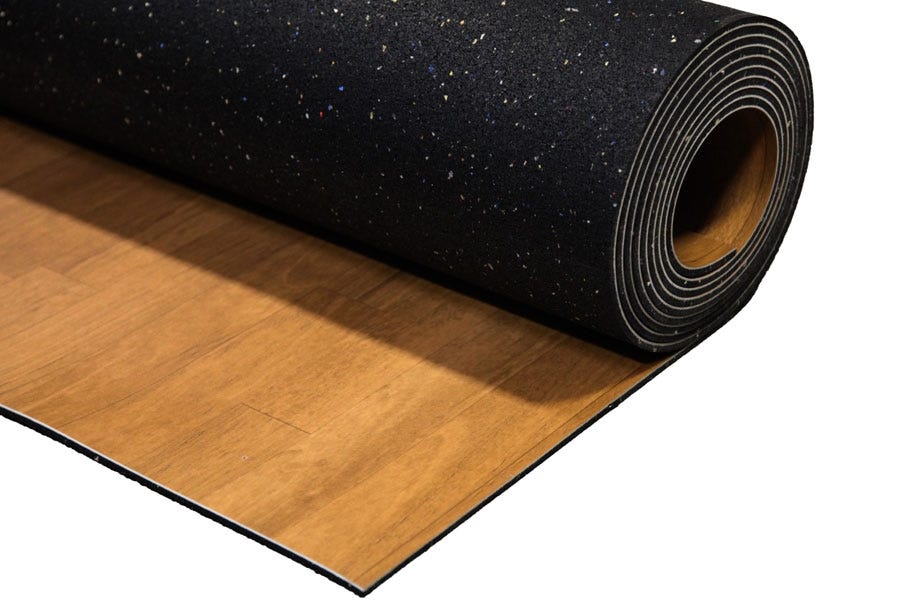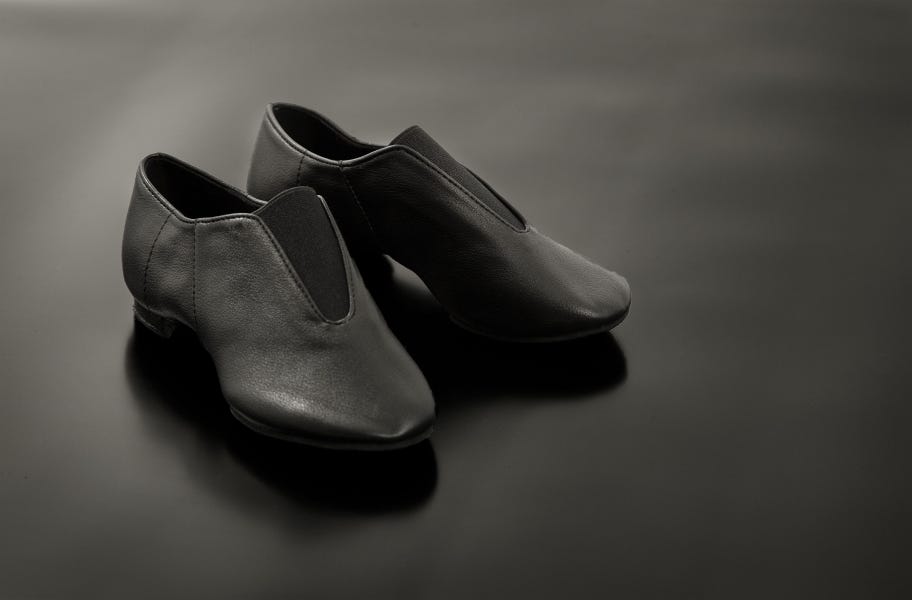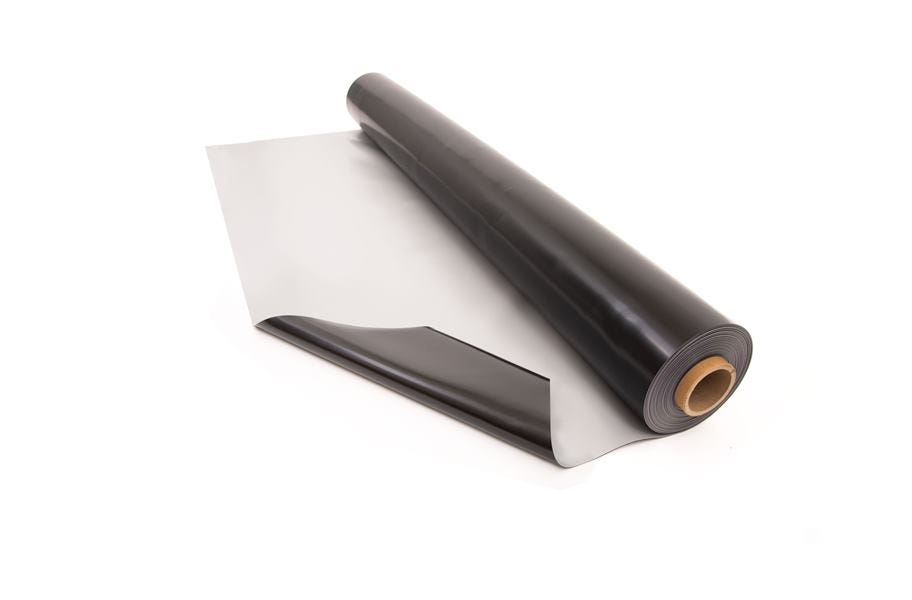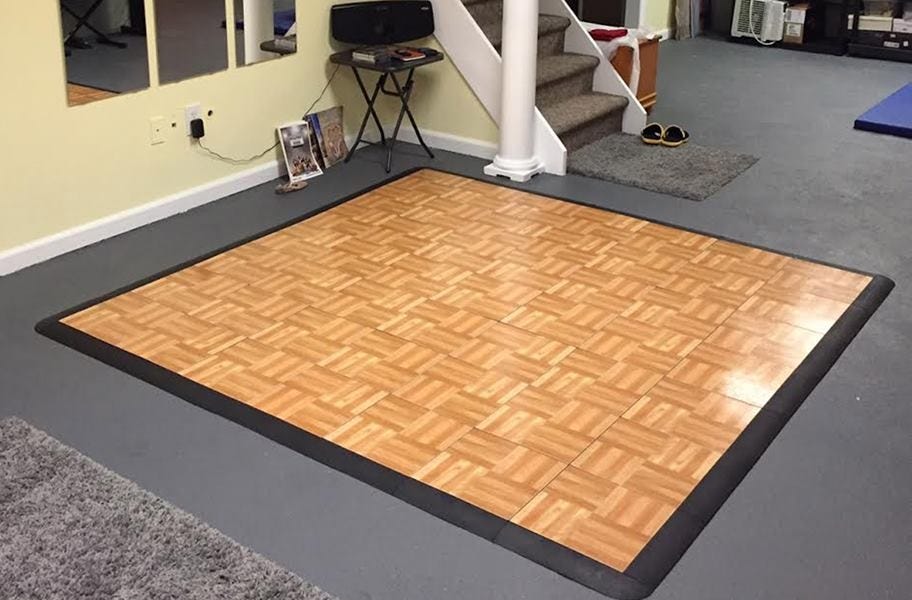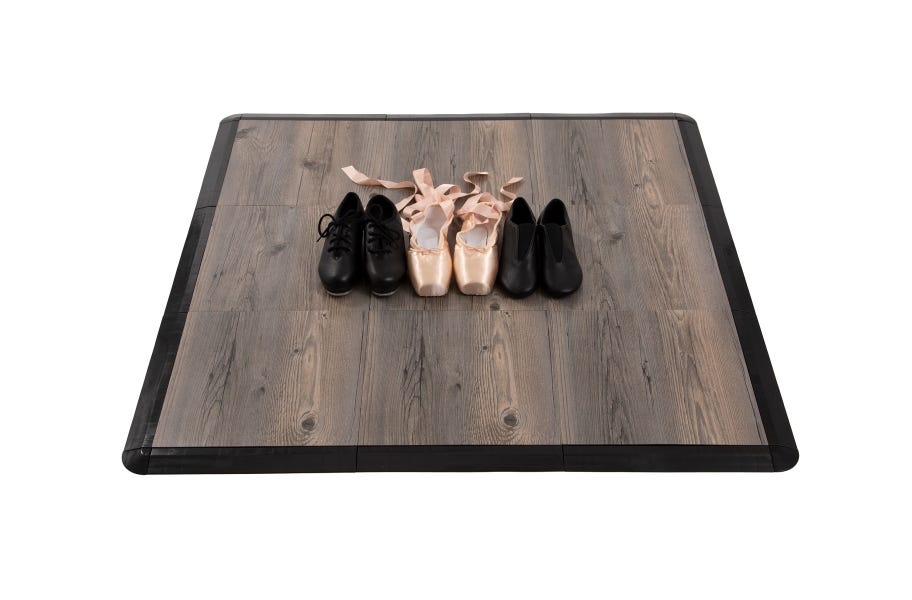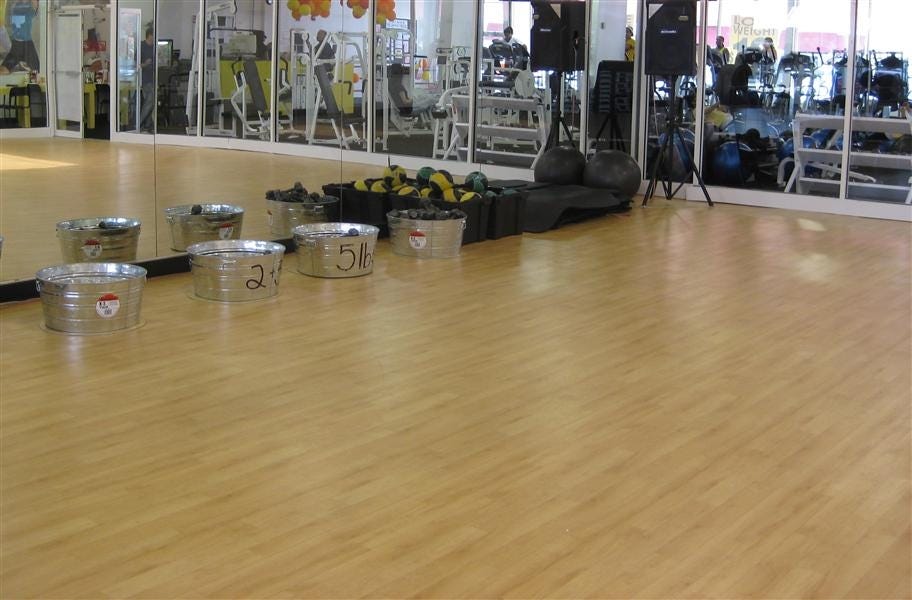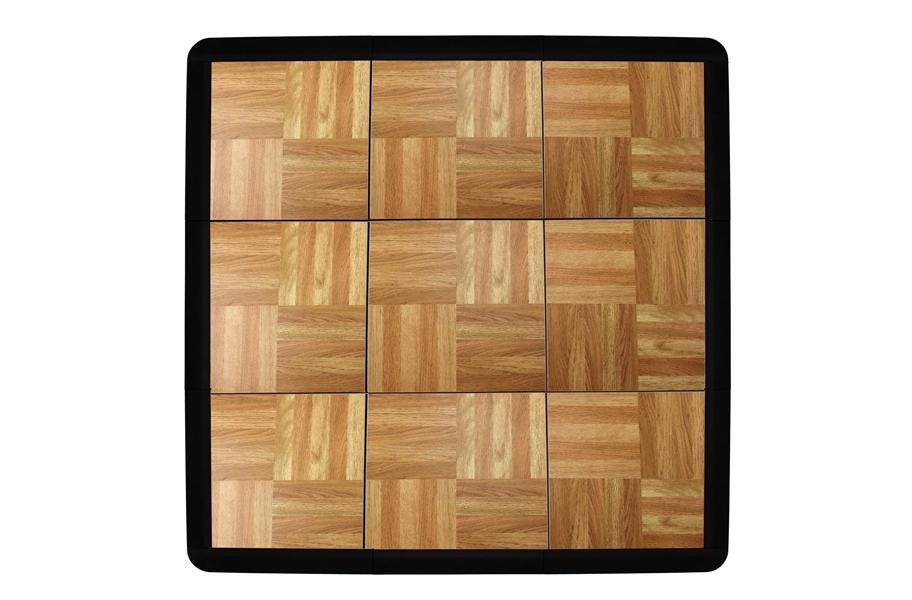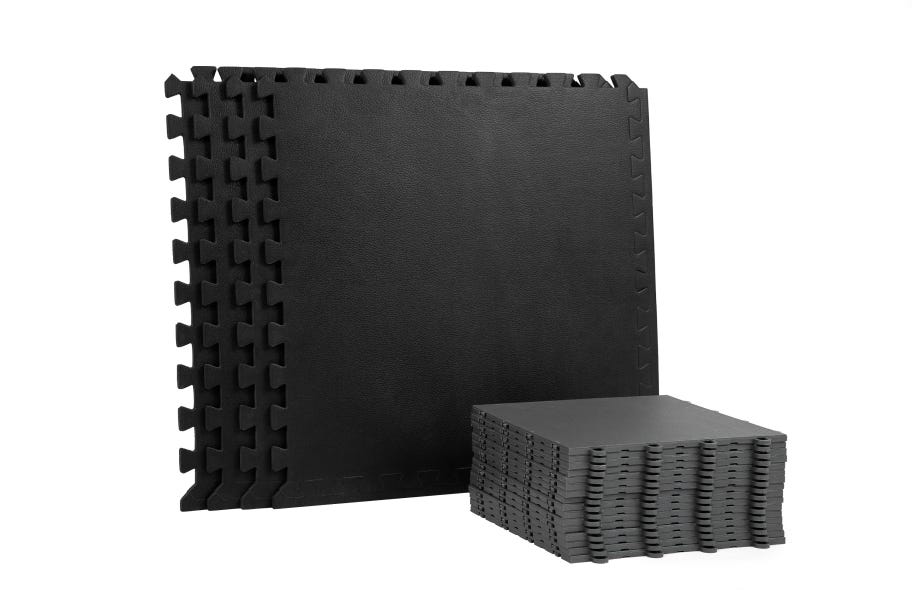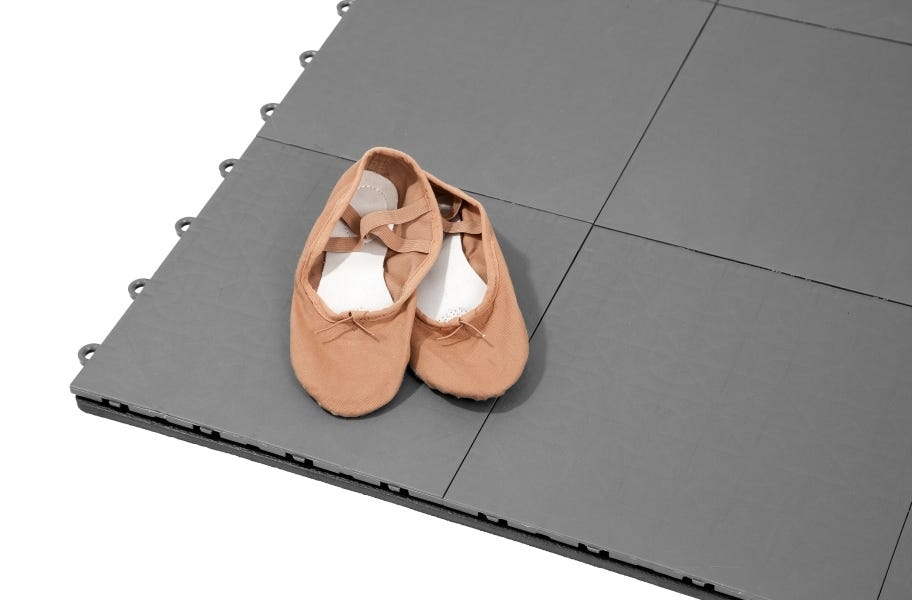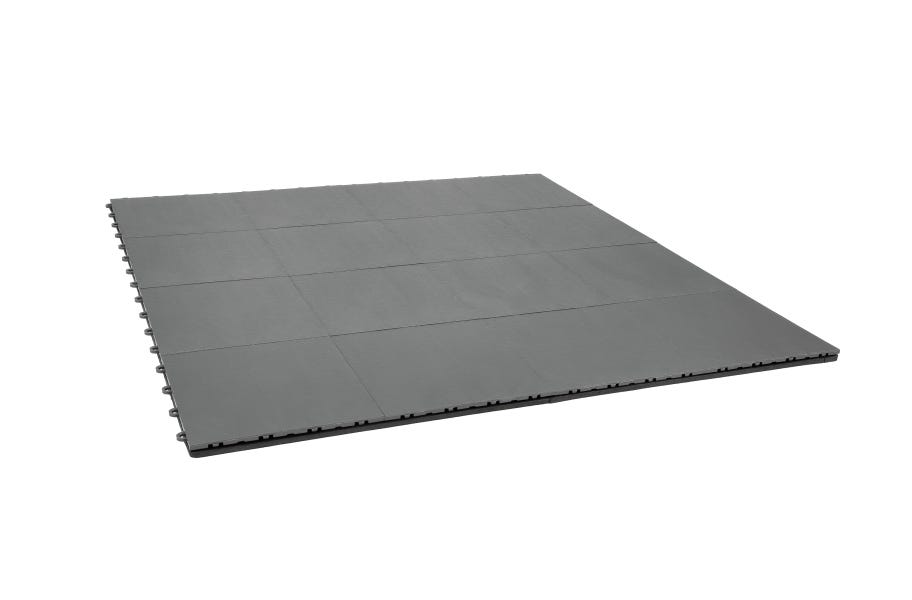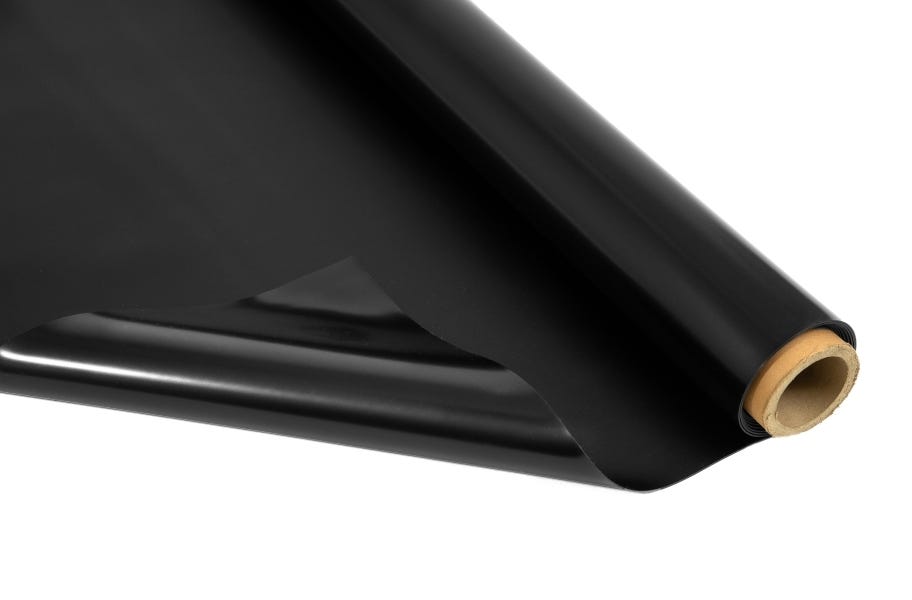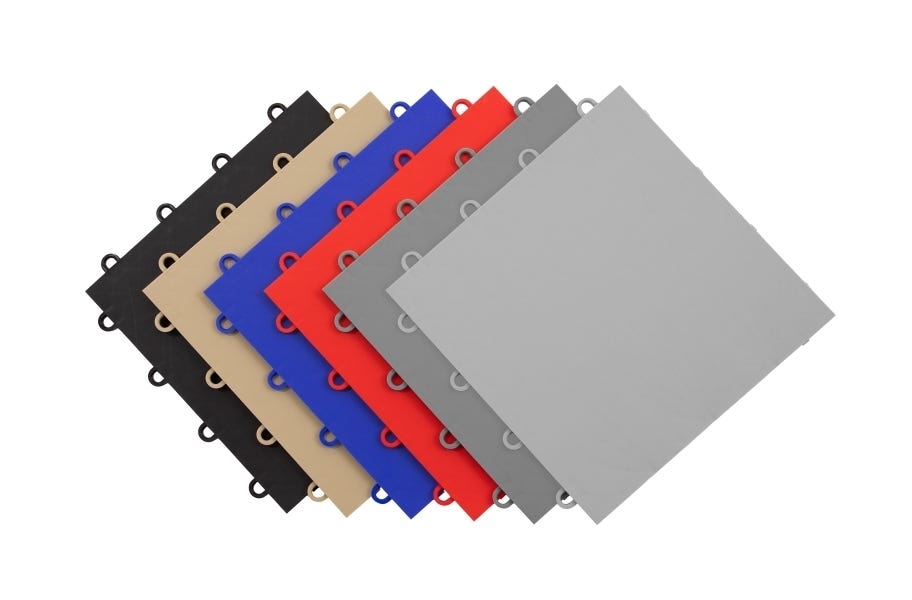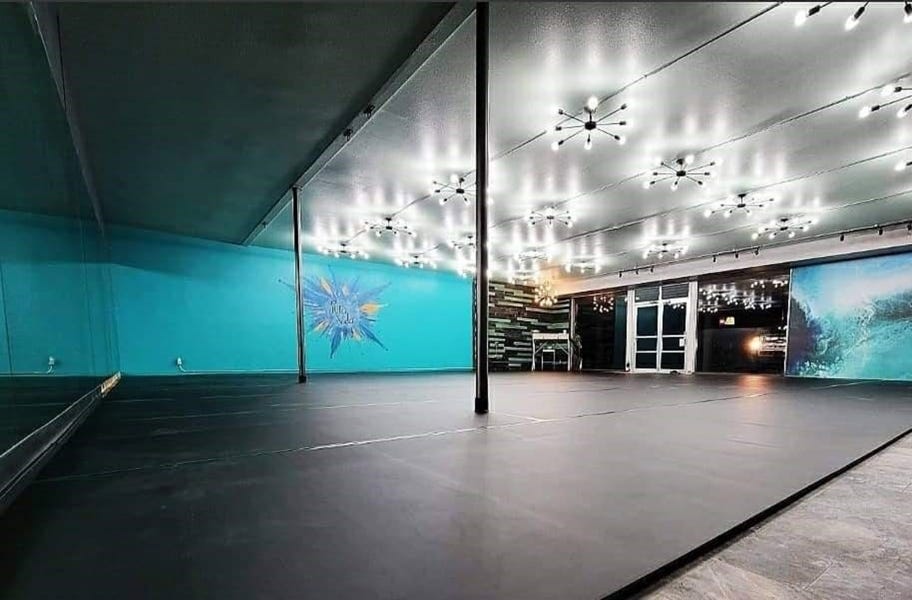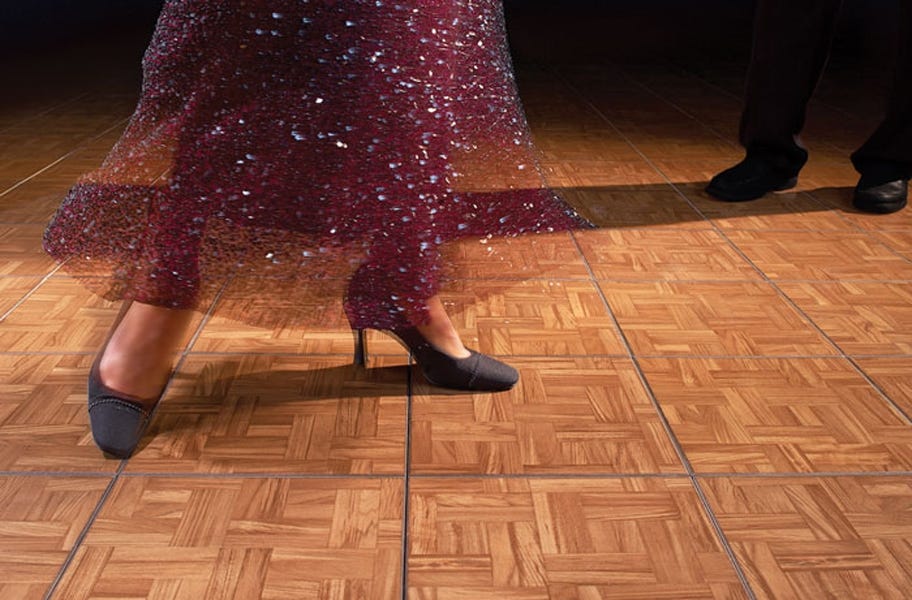
From beautiful turns to gliding across the floor, ballroom dancing is an art form. But to truly master all types of ballroom routines, you need to start on the right floor.
Find the perfect floor for your studio with our ballroom dance flooring buying guide. Whether you’re looking for ballroom flooring for a home or a school, we have a floor for everyone from beginner to professional.
To help you find the right ballroom dance floor, this guide will go over how to choose the right ballroom flooring, the different types of floors, how to install them, and more.
| Related Content >> How to Choose Dance Flooring |
How to Choose Ballroom Flooring
When shopping for ballroom dance flooring, there are a few considerations you’ll want to keep in mind to ensure excellent performance. Let’s talk it over before we dive in.
- Sprung flooring: A sprung dance floor is what makes the floor more resilient and forgiving. It helps absorb shock and can greatly reduce injury and improve dancing performance.
- Grip and slide: Ballroom dance floors should have the perfect balance of grip, to keep the dancers from slipping, and slide to help the dancers easily move across the floor. If there’s too much of either grip or slide, dancers can get tripped up and slip while performing.
- Footwear: Ballroom dance shoes are often elegant and fashionable. However, they also vary between men and women, as most women prefer wearing heeled shoes in a routine. It’s important to consider the various footwear being worn and make sure your desired floor can handle it.
- Color and pattern: Depending on where you are practicing or performing, the color or pattern of your dance floor matters. Whether or not you want a patterned or solid color floor narrows down your search.
- Durability: In a ballroom, you never know what kind of stomps, kicks, and flicks will be inflicted on your floor. For this reason, you want a floor that is ready to handle any type of performance.
- Portability/ installation: If you take your ballroom routines on the road, you’ll want to be comfortable while transporting and installing your dance floor.
- Price: Regardless of if you're a ballroom pro or just starting, price matters. Be sure to find a flooring option that is within your budget.
Ballroom Dance Floor Tiles
For the beginner and serious ballroom dancers who will be spending hours per day dancing in heels, a hard surface dance floor is an excellent choice.
Dance tiles bring the sophistication of ballroom dance with a wide variety of wood-look and hard plastic tiles that create a durable, gorgeous surface to practice or perform on. Plus, dance tiles are super versatile. You can easily control your space's size and use them for a large ballroom studio or a small basement practice space.
They’re ridiculously easy for any flooring novice to install with a simple, straightforward snap-together system. And the best part? You can easily pack them up if you’re moving to a new location, which means you won’t have to spend extra money on a new floor if you decide to relocate.
Practice Dance Tiles
Our Practice Dance Floor Tiles are durable and are often used as event flooring. Whether you are setting up a small practice space in your home or putting together a portable dance floor for competitions, these tiles can be easily set up anywhere. Plus, you can purchase tile by tile to create the exact sized dance floor you need.
Dancetrax Tiles
Dancetrax tiles are a durable solution to your dance flooring needs. These tiles can handle every stomp, kick, and leap without a problem with their vinyl top surface. Available in beautiful styles and colors that can be mixed and matched, these modular tiles are portable and easy to install.
Flat Top Dance Tiles
Whether you are looking to expand your existing dance subfloor space, or you are building a brand new dance floor, Flat Top Dance Tiles are the perfect solution. Ideal for practice in the home or use in studios, the hard plastic surface is great for any shoe type and several dance styles.
| Related Content >> Dance Floor Tile Buying Guide |
Ballroom Dance Rolls
Dance rolls or Marley is often overlooked as ballroom dance flooring. However, several Marley rolls are manufacturer-approved for ballroom, tap, flamenco, and even things like Irish step. You 100% can do ballroom on some Marley floors, just not all Marley floors.
The main things you’re looking for in ballroom Marley is durability, floor speed, and balance of grip and slide. The extra grip Marley provides is great for safety and control. However, too much grip is not appropriate for ballroom dancing as dancers typically glide across the dance floor and don’t want to get tripped up.
The awesome thing about Marley is that it rolls out in a variety of colors and styles. Some Marley is even topped with vinyl to look like real wood. So no matter what routine you’re mastering, your Marley floors will support every step and look great.
Wood Dance Rolls
Wood Dance Rolls feature a vinyl wear layer that is backed by a rubber underlayment, resulting in a floor that looks like a professional studio hardwood with a slight “give” that a dancer needs. This ergonomic sprung flooring is heavy-duty, great for high-energy ballroom routines, joints, and landings, and looks like wood without any of the high maintenance.
VersaStep Dance Rolls - Full Roll
VersaStep Dance Rolls are designed for professional studios as well as home practice spaces and are great as ballroom flooring. This roll-out floor can be used with hard and soft shoes for a variety of dance styles. Plus, VersaStep rolls have a controlled slip surface, creating the perfect dance floor that is durable and long-lasting.
ProStep Dance Floor
Available in reversible colors black/gray and black/white, our ProStep Dance Floor is very lightweight and flexible, so it can be easily installed and disassembled as needed. It’s ideal for temporary dance flooring solutions and tours and provides excellent controlled slip. Plus, ProStep Dance Floor Marley is a medium-fast floor with extra resiliency.
| Related Content >> Marley Dance Flooring Buying Guide |
Portable Ballroom Dance Floors
Are you a traveling ballroom dancer? A portable ballroom floor can make life on the road easier!
Portable dance floors are easy to install and disassemble. So whether you’re a teacher, choreographer, or dancer, your floor can come with you from gig to gig or you can continue practicing in your very own home. From portable dance tiles to rolls, you can master your routine on the go.
Practice Dance Tile Kits
Our Practice Dance Tile kits are designed to fit your practice space. Whether you’re working on a solo, or a couple or group routine, these practice tiles are ready to support you. Available in multiple sizes, complete with edging, this portable dance flooring can be easily assembled and disassembled for multiple uses.
Wood Dance Rolls
Eco-Wood Dance Rolls are a low-cost all-in-one dance roll that is functional and stylish. A perfect alternative to hardwood flooring, this roll features a durable vinyl top with a foam backing that is specially constructed to minimize leg stress and injuries. This dance mat provides shock absorbency and wonderful “slip” for a variety of dance styles.
Modular Dance Floor Kits
For dancing on the go, Modular Dance Floor Kits are designed for any level of dancer and are perfect when used as a lightweight, portable flooring surface. Made to install and disassemble quickly and easily, this kit lets you practice your routine wherever dance flooring is desired.
| Related Content >> Portable Dance Flooring Buying Guide |
Ballroom Dance Subfloors
Do ballroom dancers need subfloors? Absolutely!
Whether you’re a performer, studio, school, or professional company, the last thing you want is injured dancers. The best way to reduce injuries is to start with a dance subfloor.
Subfloors absorb and distribute the dancer’s weight and create a sprung floor for the dancers. This allows dancers to continue to glide, leap, and roll with a lower risk of injury. Thankfully there are tons of great, supportive subfloors to go under your ballroom floors. Just install your subfloor tiles over a clean, flat, level surface.
Premium Home Dance Subfloor Kit
For a sturdy subfloor solution, this kit has what you need. You can easily install and uninstall this two-part subfloor system then move it anywhere. Premium home dance subfloors are created with two layers: home dance subfloor tiles for cushioning and durable, firm plastic tiles for a sturdy surface. Plus, the tiles simply interlock together within each layer, requiring no messy glue.
Premium Plus Home Dance Subfloor Kit
A thicker version of our Premium Home Dance Subfloor Kit, this two-part system comes with our 3/4" home dance subfloor tiles and firm 3/8" plastic tiles to provide a sturdy landing underfoot. Easily install or uninstall these interlocking tiles to create the ultimate dance flooring subfloor.
| Related Content >> Dance Subfloor Buying Guide |
How to Install Ballroom Dance Flooring
Whether you choose dance tiles or Marley as your ballroom dance floor, odds are they need to be installed after they’re delivered. To make sure you know everything about installing your dance floor, check out these simple instructions for installing both ballroom Marley, and ballroom tile flooring.
Installing Ballroom Dance Marley Floors
A great thing about installing Marley dance floors is that it rolls right out, no matter the brand. The main difference in installation is the portability of your vinyl floor and if you’re doing a permanent, semi-permanent, or temporary installation.
Traditionally, you can easily install Marley dance rolls yourself by laying the rolls flat and using vinyl tape over the seams. However, there are few considerations for temporary and permanent installation methods. Let’s take a look.
Temporary Installation
- Unroll the flooring and let it rest for 1-2 days to allow it to relax until it lays flat. Install the shiny side down, matte side up.
- To make any cuts to the rolls, use a straightedge and a utility knife. Be sure to leave a 1/4″ gap around the rolls to account for expansion and contraction from temperature changes.
- On the underside of each roll, apply double-sided carpet tape around the perimeters, and firmly press the edges to the floor, ensuring there are no ripples.
- If you’re installing over subfloor tiles and you have excess around the edges, tape this perimeter down to your main floor using Mat Tape, creating a ramp or tapered installation. If you’re installing over foam tiles and there isn’t extra around the edges, tape down the perimeter of the roll directly to the subfloor tiles using Mat Tape.
- Use mat tape or dance floor tape on top of the flooring to join the seams of multiple rolls together.
Note: Over time, you may need to replace the tape as it gets worn down or torn from footwork. You should refresh the top tape every few months. The double-sided tape underneath can last for a couple of years.
Permanent Installation
To make sure your Marley roll stays put, there are a few more steps to take. This process requires glue to ensure excellent adhesion to the subfloor.
- Spread out the rolls and allow them to relax for 1-2 days until they lay completely flat. Make sure the shiny side faces down, with the matte side up as the top is textured to provide a better grip while dancing.
- Use a straightedge and a utility knife to cut the rolls to fit.
- Roll up the flooring at one end of the room. Spread a light layer of adhesive in 10’ increments or shorter depending on your comfort. Then gradually unroll the flooring into the adhesive.
- Continue this step for every 10’ of the roll until you’re finished.
- To push out any air bubbles and to ensure good adherence, use a 100-pound roller on the floor. Walking on the flooring in small choppy steps may also work if you can’t get a roller.
Installing Ballroom Dance Tile Flooring
Dance floor tiles are even easier to install than rolls. The edges interlock with a snap, kind of like giant puzzle pieces. You can do it on your own in a day. Plus, you can easily pull them up and transport them if you need to. Let’s get started.
- Start at the top left corner of the dance area. Place the first tile with the peg edges facing towards the top and left. Make sure the loops face the bottom and right.
- Insert the pegs of the second tile into the loops of the first. Step on the edge of the tiles gently to snap them together.
- Repeat this step until you finish one full side of your dance floor.
- Begin a second row, interlocking the top of your second-row tile with the bottom of your first-row tile.
- Follow the same process to fill in all of your rows of tiles to create your full dance floor size.
- Once the tiles are in place, add any finishing edge pieces if you purchased them. These will either have loop or peg edges. Start with the peg edges, and lay them out to be sure you have enough before clicking them into place.
- As you did with the peg edges, count out all of the loop edges to make sure you have enough. Once you are ready you can click the loop edges into place to complete your floor.
Pro Tip: If you’re installing wall-to-wall dance tiles, you’ll need to cut them to fit when you come up to a wall. Just measure and mark the tile, and cut it to fit using a tile cutter or a power saw with a fine-toothed blade. Be sure you leave a 3/4” gap between the tiles and the wall for expansion and contraction.
Ballroom Flooring Maintenance
The best way to combat outside dirt is to choose a dance floor that is easy to take care of. You’re going to have to end up cleaning it regularly, so you don’t want a floor that requires too many cleaning steps.
Great news! Our selection of ballroom dance flooring is super easy to clean and maintain. As long as messes are cleaned up promptly, Ballroom dance floors just require sweeping/vacuuming and a damp mop with a mild cleaning solution.
Not sure what flooring cleaner to use? We have a selection of all-purpose and heavy-duty dance floor cleaners to make it easy!
SHOP ALL-PURPOSE DANCE FLOOR CLEANER SHOP HEAVY-DUTY DANCE FLOOR CLEANER
| Related Content >> Dance Studio Flooring Buying Guide |
Conclusion
Now that you have an idea of what you’re looking for in terms of Ballroom flooring, are you ready to find the right floor for you? Remember, the flooring should hang tough against heel digs, stomps, and more.
Great news, we have a huge selection of flooring to choose from!



